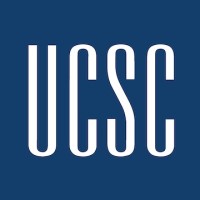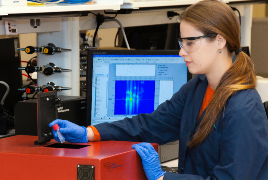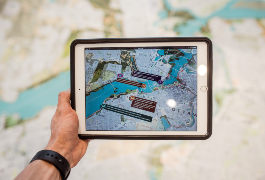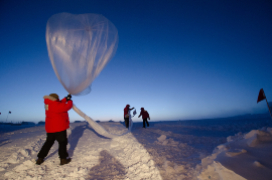Bachelor of Science in Earth Sciences (Bachelors)
UC Santa Cruz
Santa Cruz, CA
The bachelor of science (B.S.) program is designed for students who intend to pursue professional careers in Earth and planetary sciences, engineering, policy, law, teaching, or business or who otherwise desire the broad, quantitative training available at the University of California, Santa Cruz. In addition to providing comprehensive preparation in the basic physical sciences, and particular breadth and depth in Earth and planetary sciences, the curriculum is structured to prepare students for the competitive graduate school and career marketplace.
The core of the major includes calculus, physics, chemistry, and a group of comprehensive Earth and planetary sciences courses. For the general B.S., students then select at least six additional courses from a diverse list of upper-division electives, with at least two that involve significant laboratory or field data acquisition and analysis. These electives, often in combination with additional upper-division courses from this and related departments, provide the student with expertise in one or more subdisciplines within Earth sciences.
Elective distributions can be designed to emphasize earthquake and faulting studies, Earth surface processes, Earth system sciences, geologic hazards, geology, crustal and deep-Earth geophysics, marine geophysics, and water resources. Four formal concentrations, all with specific course requirements and leading to an Earth and planetary sciences B.S., are available: geology, geophysics, ocean sciences, and planetary sciences. A senior comprehensive experience (senior thesis, geologic field camp, or intensive capstone course) is required of all majors.
Kết quả học tập của chương trình
Students graduating with a B.S. in Earth and planetary sciences (all concentrations) should be able to:
✔ Understand the processes governing the properties and evolution of Earth's interior and surface;
✔ Identify rocks and minerals, and describe their connection to geologic processes;
✔ Utilize algebraic mathematical tools to quantitatively address questions in the geosciences; and
✔ Write in a clear, organized, and logical fashion using disciplinary standards for reporting and citation.















